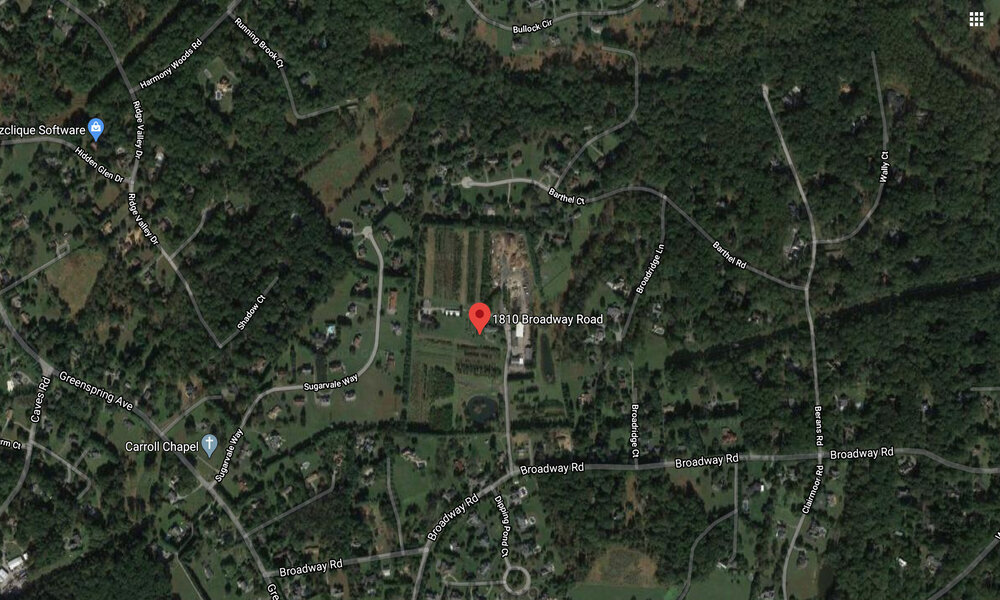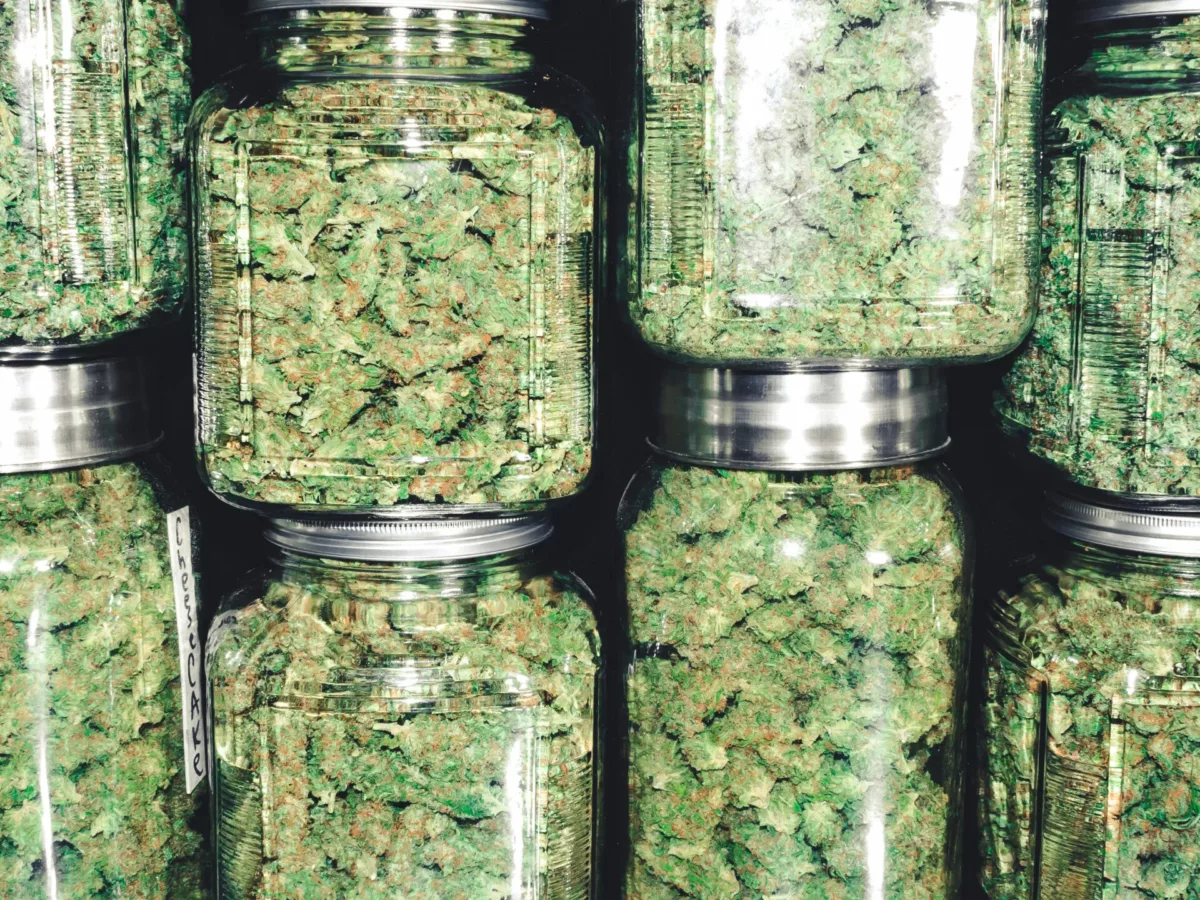Baltimore County residents are upset about the cannabis-ish smell wafting from Broadway Hemp Farm, and now a House Bill has been introduced to do something about it. As the Baltimore Sun reported last week, the smell coming from Broadway Hemp is bothering folks in the county because the residents—who were granted anonymity in the story—claimed, “the odor would cling to their clothes, cause headaches and drift through open windows.” The smell was present from late July to November of last year until the hemp was harvested. Residents worry about another growing season which for them means five or so months of that smell again.
In response, Senator Shelly Hettleman along with Delegates Jon Cardin and Dana Stein have introduced House Bill 510, which would prevent the Maryland Department of Agriculture from allowing a farm where hemp is grown to be within two miles of a residential community (the bill defines a residential community as one where there are ten or more homes).
Residents complaining about the smell of hemp and noting headaches is common since the crop’s resurgence in recent years, along with claims it makes peoples’ allergies worse and is just generally unpleasant. And unlike the smell of a paper mill or the noxious smell of chicken farms, hemp has not been something people have grown accustomed to because the industry has been dormant for so long. Those concerns about its odor are common in editorial pages of newspapers around the country often friendly to “Not In My Backyard”-isms. Cannabis website Merry Jane put it in stark terms in their recent piece whose headline was, “People Are Now Crying Over the Smell of Hemp, Too.” The Delmarva Farmer took a more circumspect approach describing the issue like this: “The dispute has pitted a small band of upscale, suburban homeowners and their legislators against the state’s agricultural industry.”
The Delmarva Farmer also reported that documents they obtained show that a state odor survey for the area around Broadway Hemp, “concluded the crop was not a nuisance to nearby homeowners.” HB 510’s more lasting impact would be to potentially limit future hemp production, which is still fairly limited and slow-going in Maryland. Residents’ complaints also introduce concerns as it applies to Maryland’s right-to-farm laws. “The intent of right-to-farm laws are to discourage neighbors from pursuing nuisance lawsuits against farmers because of odor, dust, noise from field work, spraying of farm chemicals, slow moving farm equipment or other occasional effects of agricultural production,” explains “Maryland’s Right To Farm: Statue and County Ordinances,” released by the Maryland Department of Agriculture.
The Delmarva Farmer reports that one resident near Broadway Hemp, a lawyer named Jack Turnbull said he would sue if the farm was not shut down. That lawsuit has not happened and instead residents have reached out to politicians who intend to offer up a legislative solution. Of the three hemp farms currently in Baltimore County, Broadway Hemp Farm is the only one near residences, as The Outlaw Report—who drove out to the farms—observed. HB 510 then, which is in Senator Hettleman’s district, would primarily affect Broadway Hemp Farm.
“I think some sort of accommodation to address the unintended consequences of our earlier action is warranted,” Hettleman told the Sun.
Broadway Hemp Farm’s Vincent Piccinini has declined to speak to the press, and The Maryland Department of Agriculture has not yet weighed in on the bill and also declined to comment. A hearing on HB 510 is set for 1 p.m. on February 25.
Meanwhile, a report by the National Association of Realtors (NAR) titled “Marijuana and Real Estate: A Budding Issue” released earlier this month illustrates the complexities of cannabis when it comes to residents, commercial businesses, and the real estate industry. Based on a survey of members of NAR, the report explores trends among residential and commercial real estate “regarding their interaction with marijuana and the real estate sector in states where marijuana is legal.”
In this context, “legal” means places that have medicinal cannabis as well as places that have cannabis legalized for recreational adult use.
NAR’s report shows that cannabis companies’ need for commercial space and warehouse space has been good for the economy, even if it pokes at many peoples’ preconceived notions about cannabis. “In states where prescription marijuana use is legal, 19 percent of commercial members had seen an increased demand in warehouses, 18 percent in storefronts, and 15 percent in land,” the report explains. “In states where prescription and recreational marijuana use is legal, 34 to 42 percent of members had seen an increased demand in warehouses, 18 to 19 percent in storefronts, 16 to 21 percent in land.”
The report explains that a small percentage of commercial business owners object to being in proximity to dispensaries: “About one-fifth of commercial members in states where only medical marijuana is legal noted some tenants do not want to be near a dispensary, compared to one-third of those where both medical and recreational were legalized in the past three years.” NAR’s report also shows that residential realtors have seen homeowners associations adopting regulations around use and growing, and even title concerns in a home where cannabis was used or grown.
Last year, The Cannabis Executive reported similar findings via two studies that showed that home values and property values near dispensaries increased. This is a fascinating example of the country’s strange moment with cannabis where the presence of a dispensary is often a boon for a neighborhood—or at least, a signifier of gentrification not unlike a coffee shop or brewery—but a problem for landlords, residents, and legislators who retain long-held stigma surrounding cannabis. For example, NAR’s report says that the biggest issue—like those frustrated suburbanites living near a hemp farm—is the smell.
“The most frequently cited concern of commercial members was the smell when leasing to marijuana related businesses,” the report says. “Followed by theft of cash on property, moisture issues, and fire hazards.”
Image of Broadway Hemp Farm and the surrounding area via Google Earth.






